Tay Nguyen University, where I work, has quite strict regulations on calculating students’ training points. However, these regulations seem to be more relaxed than some other schools.
However, from the reality of reviewing students' training scores over the years, there have been times when I have had to adjust my working principles and be more flexible to ensure students' rights.
Try to get good grades for the scholarship
Most students who are interested in training points are those who are likely to receive scholarships to encourage learning, while other students are "whatever". The assessment of training points of students between classes and faculties is completely different even though they follow the same general standards set by the school. Because each scoring item will usually have a maximum and minimum score, and there are items that cannot provide authentic evidence such as: Strictly comply with regulations on protecting property, environmental landscape; Participate in propaganda, crime prevention and social evils; Comply with and participate in propaganda of the Party's policies, policies and laws of the State in the community; Have the spirit of sharing and helping relatives, people in difficulty and misfortune.
If a student has ever supported a difficult situation like an old man selling lottery tickets, a person whose money was stolen and has no money to buy a bus ticket home, etc., how can they go back to find the person they helped so they can testify that it was the student who helped them?
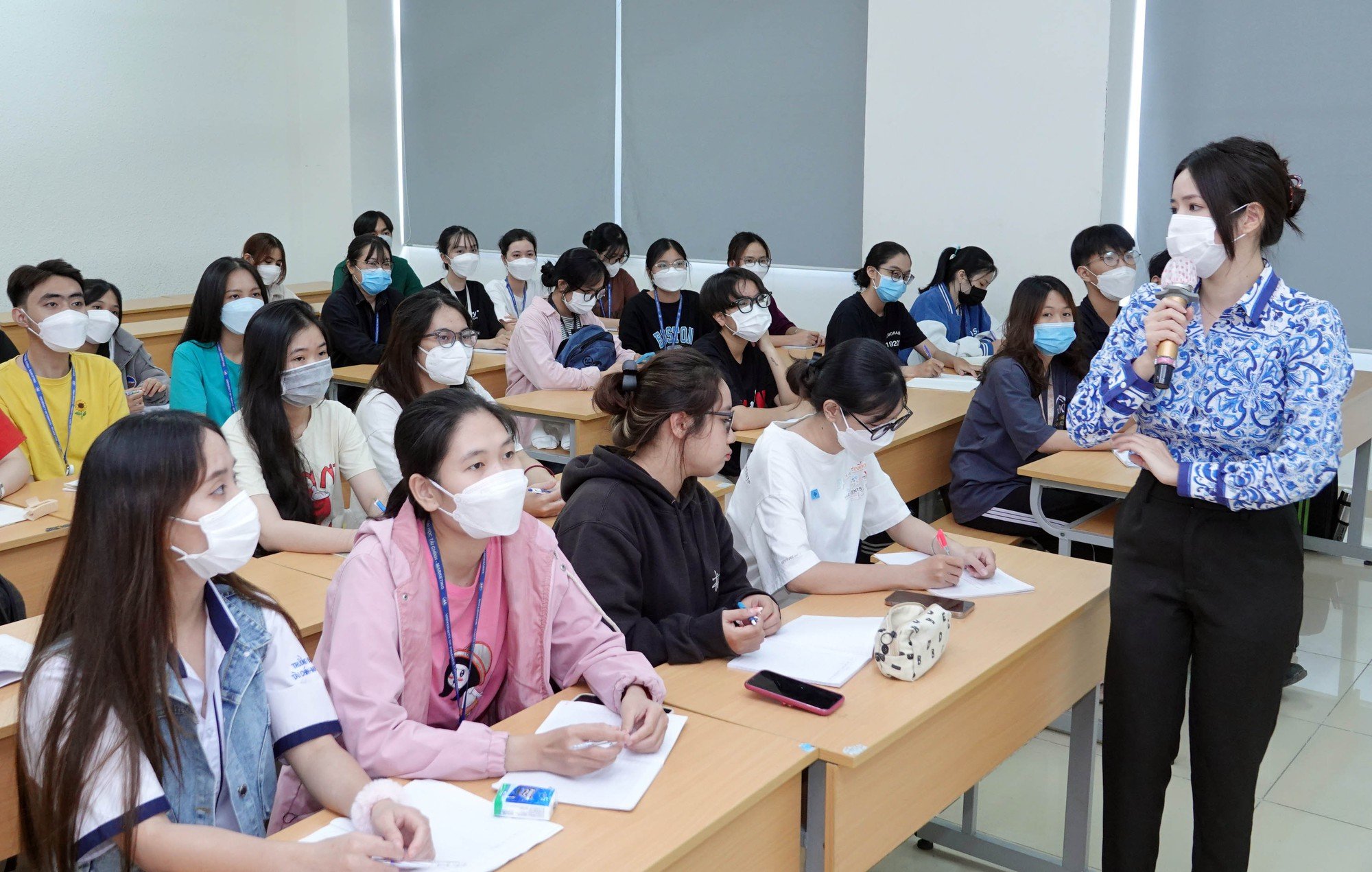
Training score is one of the deciding factors in considering scholarships for students (illustrative photo)
Moreover, students who like to help others silently do not pay attention to helping people who have to leave evidence. I know a student who did not think twice and was ready to go to the hospital to donate blood immediately when he received information that a patient needed a blood transfusion urgently and no one in the family had the same blood type.
If I asked students to go to the hospital to get confirmation of their actions to help people in need, they would definitely shake their heads and ignore it. I also know some students who participated in the Green Summer volunteer campaign 3 times in 4 years of study because they loved it, not for extra points.
Harsh grading of training points, students suffer disadvantages
Students' training scores affect the type of scholarship (amount of money) they receive. Therefore, in my first year as an academic advisor, I was very strict in considering students' training scores. I had to have evidence to calculate the maximum score, otherwise I would only give the minimum or 0 points. As a result, that semester, students in my class were disadvantaged, not receiving high scholarships but only lower scholarships even though their academic scores were the same as other classes.
The reason was that students in other classes had very high practice scores. Although the students did not blame me, I understood that they were sad because of "unfair competition". After that time, I learned from experience that I cannot be rigid in following the rules while others are flexible.
Therefore, in the following training assessment sessions, I gave flexible scores depending on the situation and agreed on a way to calculate the scores for students in a public, fair, specific and clear way in front of the class. The results were also announced right after the meeting so no student had any questions.
From the perspective of someone who spent his student years participating in many movement activities because of his own needs and not because of coercion, I think the regulation on training points is necessary.
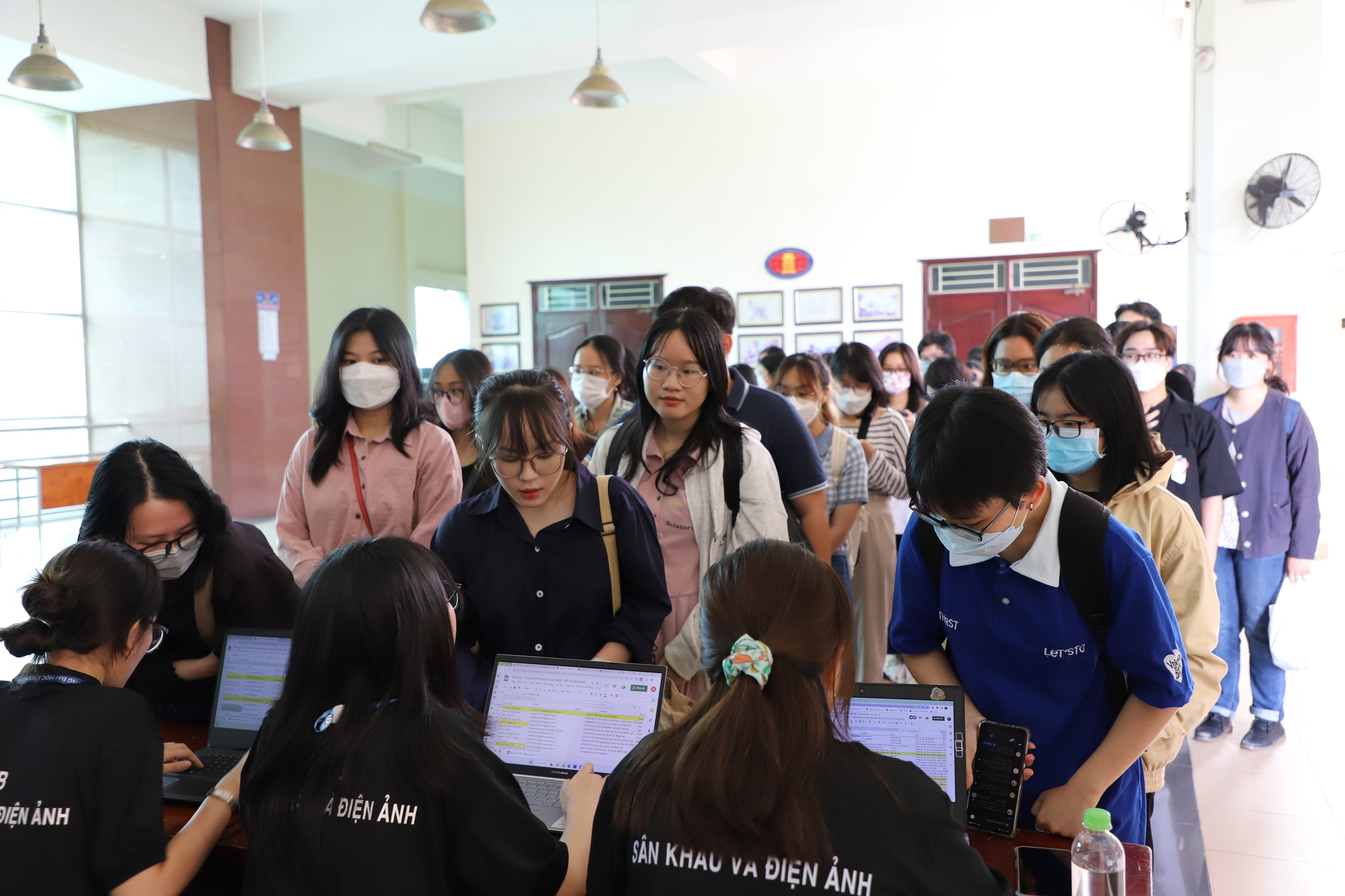
Students attend the event of the Theater and Cinema Club, University of Social Sciences and Humanities, Ho Chi Minh City
Students not only know how to study but also have to participate in Youth Union and Association activities to improve themselves and develop soft skills. To achieve a training score of 100 is of course very difficult, but 70 points is within the reach of students.
No employer requires students to have a 100-point training result, nor does anyone rate you with a 70-point score as having 100 points less moral than you. Therefore, depending on each person's goals, students can consider and choose the activities they want instead of having to participate just to get points.
Source link



![[Photo] Bustling Mid-Autumn Festival at the Museum of Ethnology](https://vphoto.vietnam.vn/thumb/1200x675/vietnam/resource/IMAGE/2025/10/4/da8d5927734d4ca58e3eced14bc435a3)
![[Photo] General Secretary To Lam attends the 8th Congress of the Central Public Security Party Committee](https://vphoto.vietnam.vn/thumb/1200x675/vietnam/resource/IMAGE/2025/10/4/79fadf490f674dc483794f2d955f6045)


![[Photo] Solemn opening of the 8th Congress of the Central Public Security Party Committee, term 2025-2030](https://vphoto.vietnam.vn/thumb/1200x675/vietnam/resource/IMAGE/2025/10/4/f3b00fb779f44979809441a4dac5c7df)

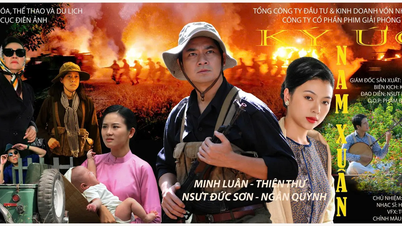





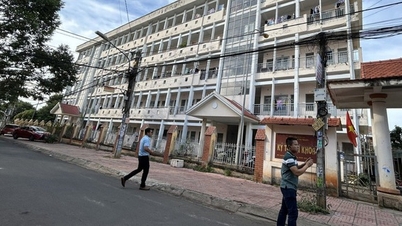
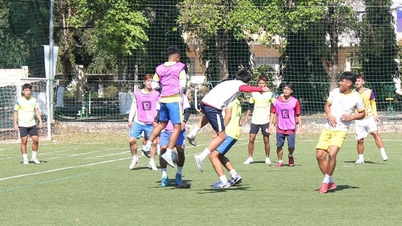
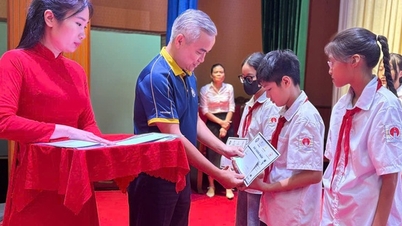















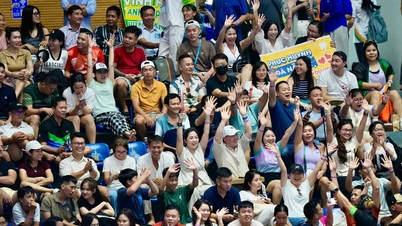


























![[VIDEO] Summary of Petrovietnam's 50th Anniversary Ceremony](https://vphoto.vietnam.vn/thumb/402x226/vietnam/resource/IMAGE/2025/10/4/abe133bdb8114793a16d4fe3e5bd0f12)

![[VIDEO] GENERAL SECRETARY TO LAM AWARDS PETROVIETNAM 8 GOLDEN WORDS: "PIONEER - EXCELLENT - SUSTAINABLE - GLOBAL"](https://vphoto.vietnam.vn/thumb/402x226/vietnam/resource/IMAGE/2025/7/23/c2fdb48863e846cfa9fb8e6ea9cf44e7)



















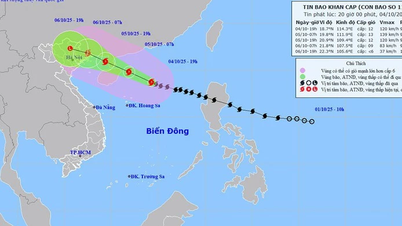














Comment (0)